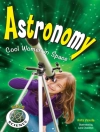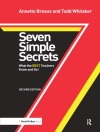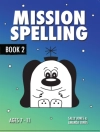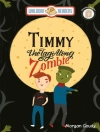Why is science hard to teach? What types of scientific investigation can you use in the primary classroom?
Touching on current curriculum concerns and the wider challenges of developing high-quality science education, this book is an indispensable overview of important areas of teaching every aspiring primary school teacher needs to understand including: the role of science in the curriculum, communication and literacy in science teaching, science outside the classroom, transitional issues and assessment.
Key features of this second edition include:
• A new chapter on science in the Early Years
• A new practical chapter on how to work scientifically
• Master’s-level ‘critical reading’ boxes in every chapter linking topics to relevant specialist literature
• Expanded coverage of creativity, and link science to numeracy and computing
This is essential reading for all students studying primary science on initial teacher education courses, including undergraduate (BEd, BA with QTS), postgraduate (PGCE, School Direct, SCITT), and also NQTs.
Mick Dunne is Senior Lecturer in Science Education at Manchester Metropolitan University
Alan Peacock is Honorary Research Fellow at the University of Exeter
Jadual kandungan
The Current Context of Primary Science Teaching – Alan Peacock and Mick Dunne
Why is Science Hard to Teach? – Alan Peacock and Mick Dunne
Doing Science – Mick Dunne and Rania Maklad
Play-based Science – Eleanor Hoskins
Linking Science to the Wider Curriculum – Richard Watkins
Science and Computing – Malcolm Smith, Liz Flintoft and Robert Collins
Science and Mathematics Connections – Dave Howard, Ashlee Perry and Jill Todd
Learning Science Beyond the Classroom – Leigh Hoath
Learning Science Through Talk – Sarah Earle and Natasha Serret
Tricky Topics and How to Teach Them – Mick Dunne and Dave Howard
Planning for Assessment for Learning – Tara Lievesley, Mick Dunne and Sarah Earle
Transitions in Science Education – Leigh Hoath and Tanya Shields
Effective Inclusive Practice in Primary Science – Dave Howard and Ashlee Perry
A Way Forward – Alan Peacock and Mick Dunne
Mengenai Pengarang
Alan Peacock is Honorary University Fellow at the Graduate School of Education, University of Exeter, and until recently was Editor of Primary Science journal for six years. He has worked in teaching, training and research in science education for over 40 years, in various regions of the UK and overseas. He has carried out primary science consultancy work for the British Council, UNESCO, the EU, The National Trust, various environmental groups and numerous NGOs in Africa, including in Kenya, South Africa, Namibia, Botswana, Senegal and Mozambique. His publications include Science Skills: A Problem-Solving Activities Book (Taylor & Francis); Science in Primary Schools: The Multicultural Dimension (Routledge); Opportunities for Science in the Primary School (Trentham); Teaching Primary Science (Macmillan Education) and Eco-literacy for Primary Schools (Trentham). He has also written and edited the Sayansi (Science) series of pupils’ science texts for Tanzanian schools, and recently chaired the UNESCO working group on ‘Guidelines for enhancing quality education through textbooks’.












